Jules Von Hep: I’ve seen hundreds of naked bodies and it’s changed how I feel about my own
Opinion: "There’s no magic wand for body confidence. It’s a lifelong practice. But self-love is the greatest mental tool we have," writes the body confidence advocate
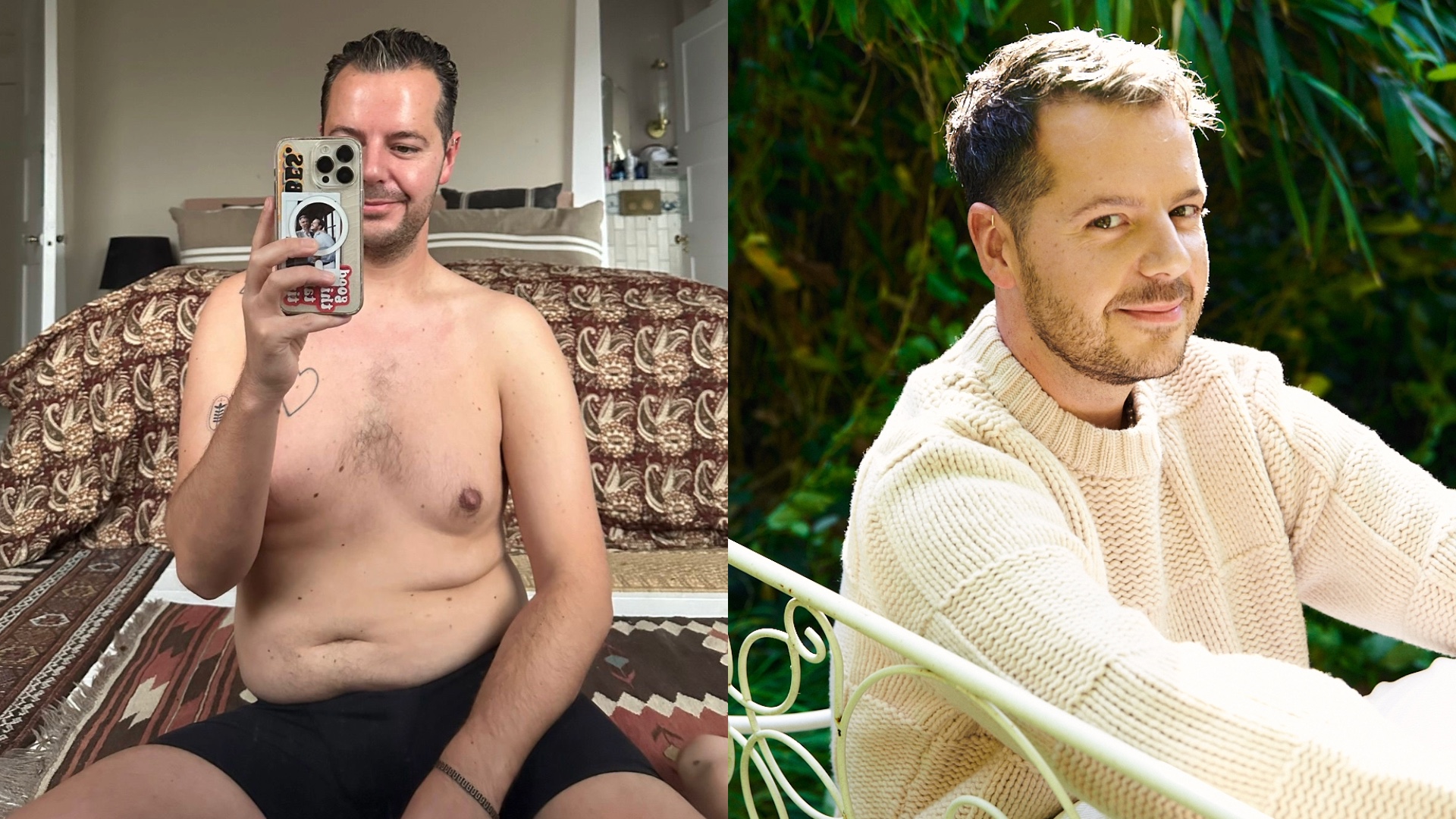
Twenty years as a spray tanner isn’t something I ever imagined would headline my CV. It’s a job I fell into and one that unexpectedly changed how I view the world. Being a spray tanner led me to create a global best-selling beauty brand, write a book, and host workshops on inner confidence. By all accounts, my CV could argue that I’m the most successful spray tanner in the world.
But I haven’t always known the art of true confidence. My teenage years were marked by relentless bullying for my queerness, and my twenties were shadowed by suicidal thoughts and eating disorders. According to research from The Trevor Project, 87% of LGBTQ+ youth report dissatisfaction with their bodies, and the UK’s Mental Health Foundation found queer adults are nearly twice as likely as heterosexual adults to feel anxious or depressed about their appearance. Those numbers mirror my own experience. In many ways, spray tanning quite literally saved my life.
The bullying I experienced meant my self-worth never had the chance to surface. I believed my value as a person was based solely on how I looked. I couldn’t hide my campness, but I could starve myself in order to fit a body ideal that I thought might make me acceptable. Studies published in the Journal of Eating Disorders show that these internalised beauty standards – especially among queer men – are linked to elevated rates of disordered eating and body dissatisfaction.
“I didn’t like what I saw in the mirror, so why should anyone else?”
That low self-esteem shaped the choices I made. From the people I surrounded myself with to the partners I chose, I tolerated toxic relationships because I blamed myself for other people’s behaviour. I didn’t like what I saw in the mirror, so why should anyone else?
Then came spray tanning. I fell into it because I had no interest in a traditional 9–5. I met Hollywood facialist Nichola Joss by chance, and she suggested, based on my empathetic personality, that I give spray tanning a go.
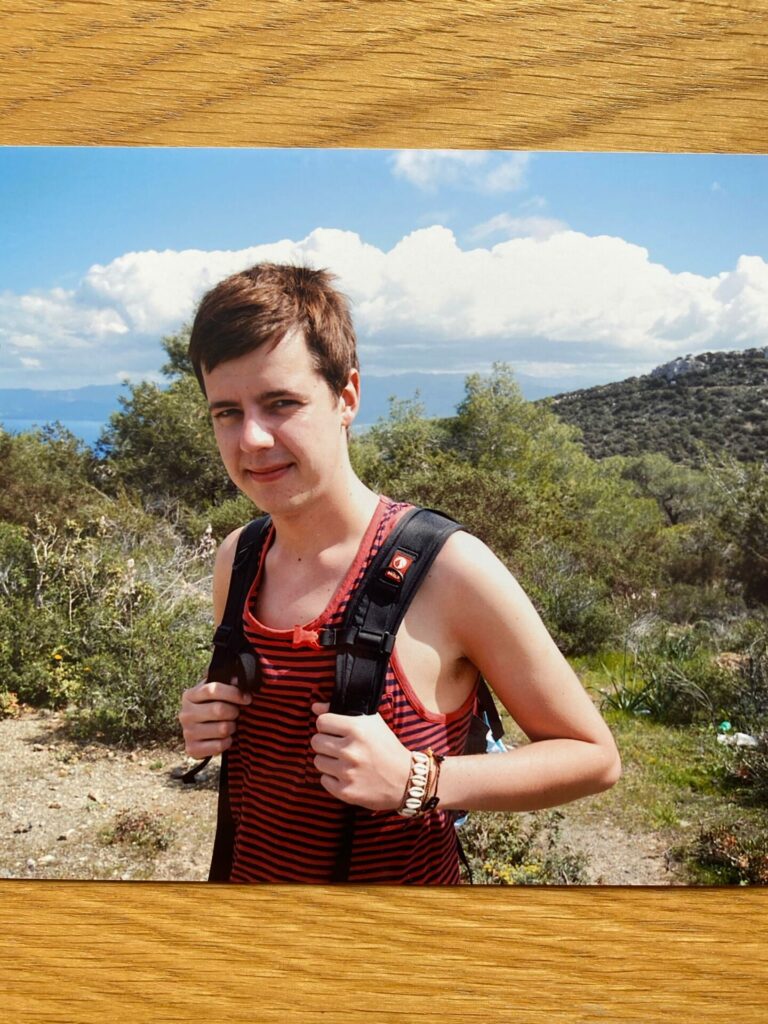
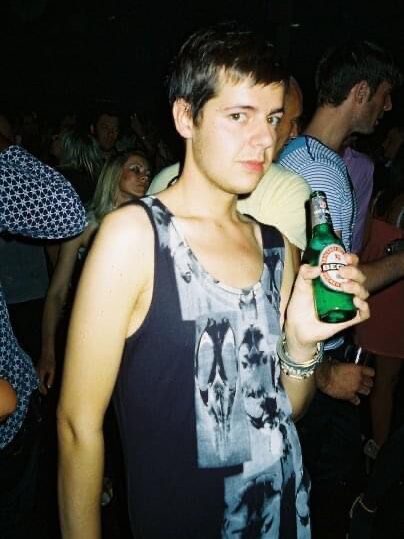
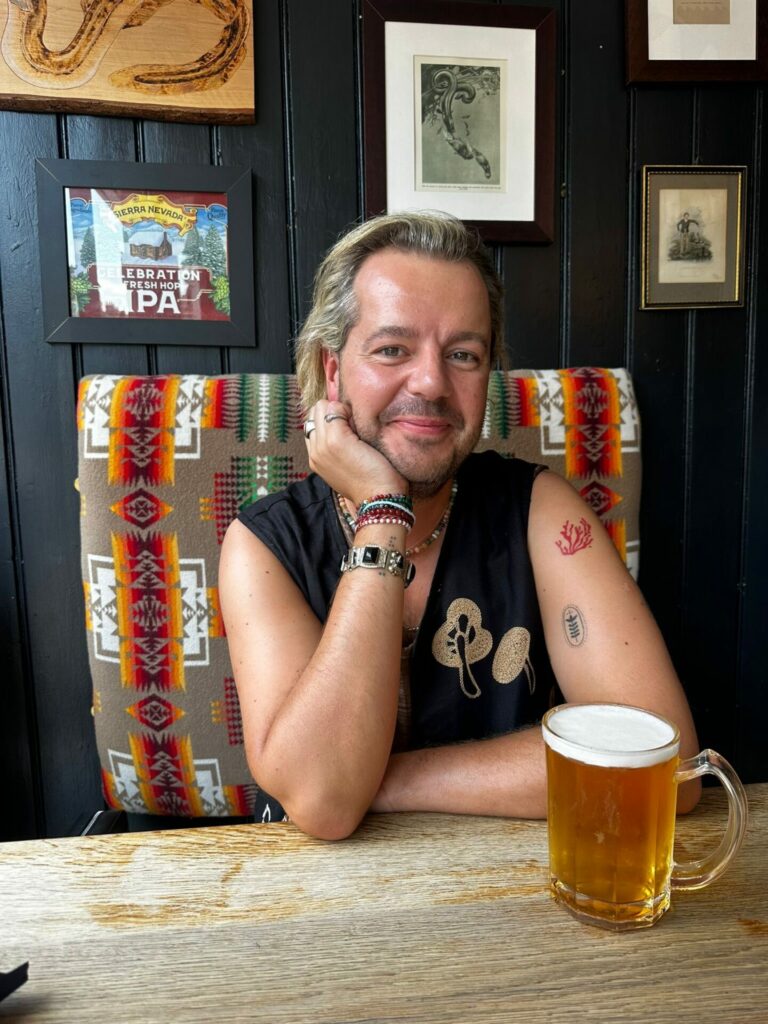
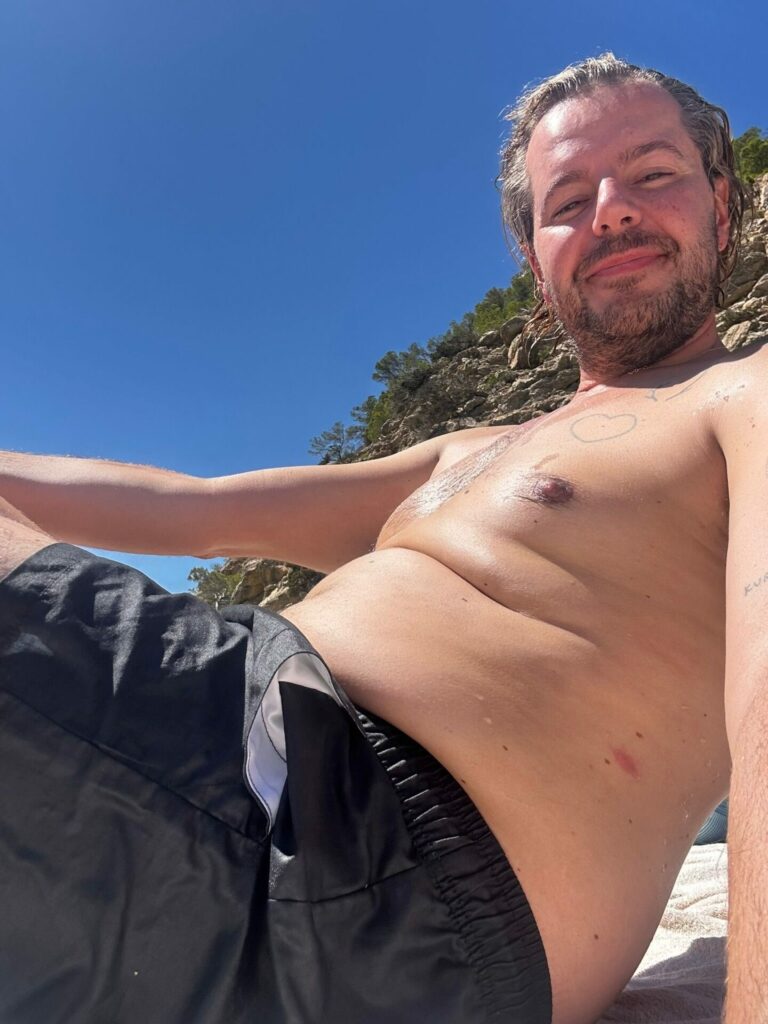
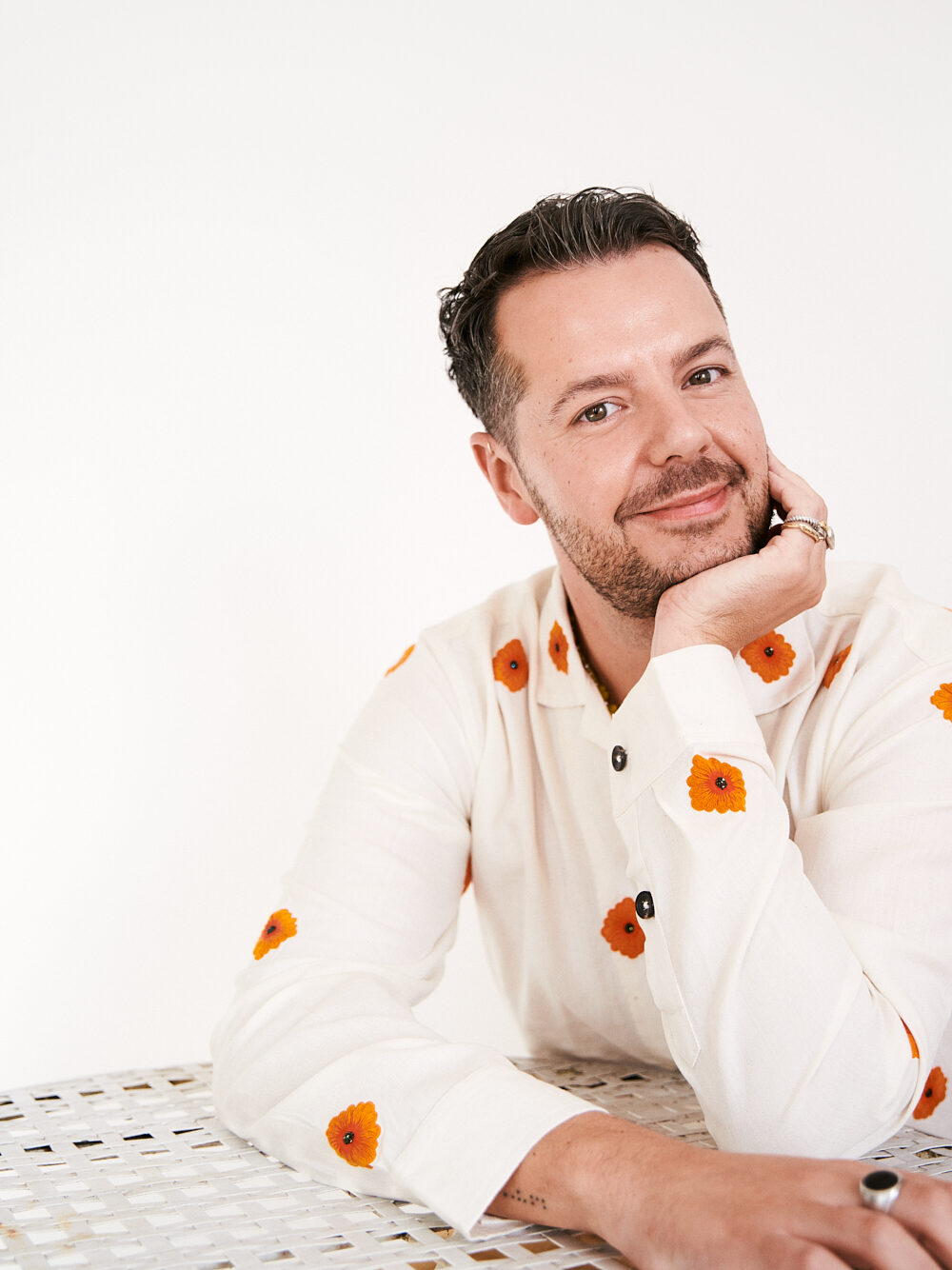
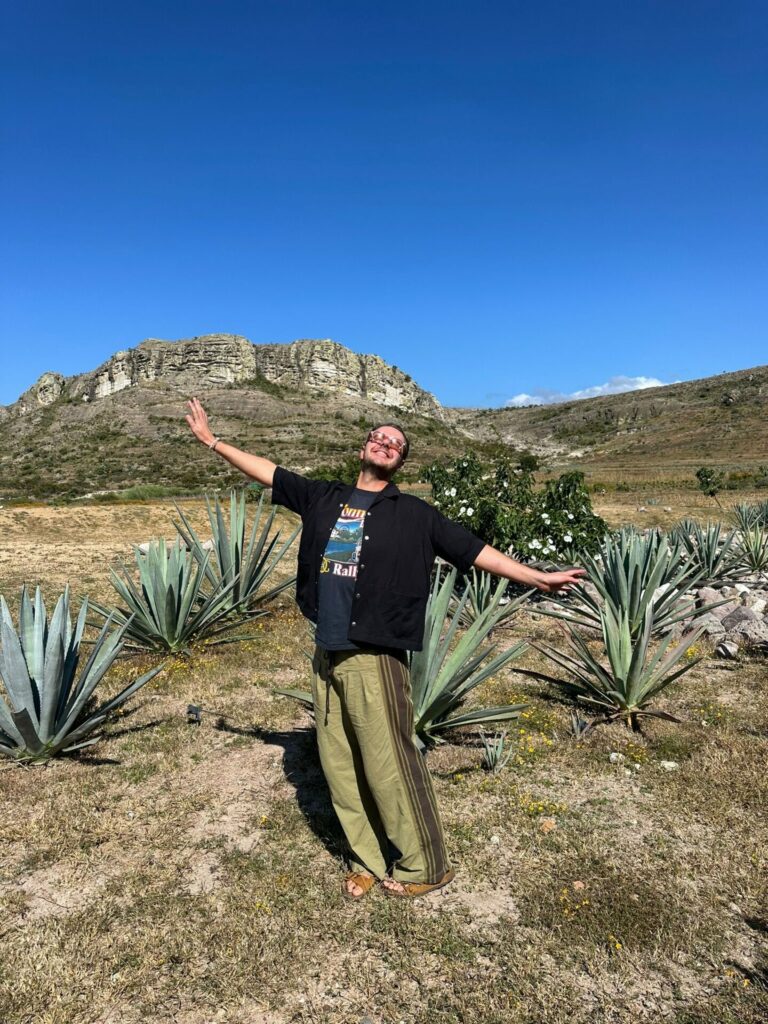
If you’ve ever had a spray tan, you’ll know everything comes off. Clothes, make-up, jewellery, even deodorant and in most cases underwear too. Nudity is something we usually reserve for intimacy or a doctor’s office, but I’ve seen it all. I’ve worked with actors, musicians, politicians, athletes, comedians – whatever the body, every client apologises as they undress. “Sorry about my stomach.” “Don’t look at my arms.” “I feel embarrassed about being naked.”
At first, I didn’t notice; I was too busy hating my own body to see the pattern. But over time, I started to ask why people were apologising. What they saw as flaws, I didn’t even notice. I saw beautiful, human beings.
“I never remembered a client’s body shape – but I remembered how they made me feel”
It hit me that our bodies aren’t the problem – society is. We’re conditioned to believe that happiness, success, and love depend on conforming to a certain aesthetic. In queer spaces, this pressure can be especially intense. Research published in The Journal of Sex Research shows that pressure is especially sharp in queer spaces, where gay and bisexual men consistently report higher body dissatisfaction than heterosexual men, driven by cultural ideals of leanness and muscularity.
As I began questioning those narratives, I realised what really mattered. I never remembered a client’s body shape – but I remembered how they made me feel. Were they joyful? Vulnerable? Did we laugh together? That’s what made them glow. I learned that my appearance is the least interesting thing about who I am.
After years of helping others glow on the outside, I discovered that the true glow-up starts within. My goal became inner peace, not outer perfection. Instead of fixating on what I hated, I started asking what I liked. That shift changed how I moved through queer social spaces. I stopped caring whether my body was desirable and started caring whether I was having fun. I wore clothes that celebrated me, not hid me. My workouts became about nourishment, not punishment.
There’s no magic wand for body confidence. It’s a lifelong practice. But self-love is the greatest mental tool we have. Confidence isn’t the final destination but the journey itself.
The Confidence Ritual, Give Yourself a Glow Up From the Inside Out by Jules Von Hep is available to purchase now.
